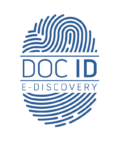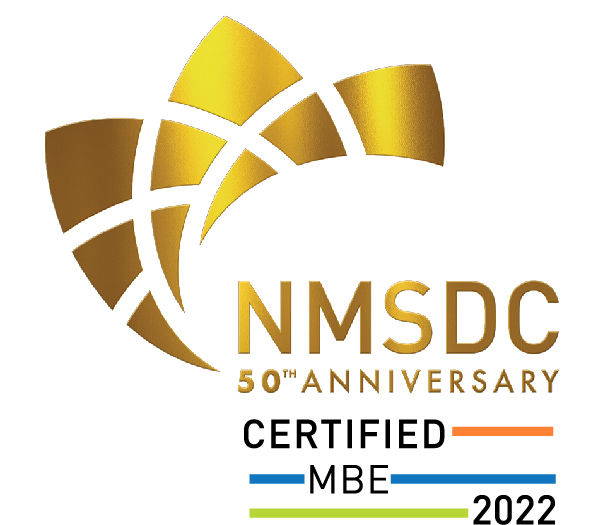Legal innovators gathered in New York City last week for a one-day legal tech conference with customized knowledge session tracks for law firms and in-house legal teams. Topics ranged from turning an in-house team from a cost center to a cost savings center, balancing risk, and innovation, navigating data privacy, and successfully handling emerging and long-term eDiscovery challenges.
Here is a sampling of just some of the incisive commentary and practical direction dispensed.
Tackling Cross Border and Modern Data in eDiscovery
An expert group of speakers discussed the data privacy regulatory and compliance considerations that arise with managing the intricacies of eDiscovery across borders.
Dera Nevin, former data policy and strategy officer at The Blackstone Group, said that planning is a critical first step to global data management. She recommends you know your data location and line it up with common litigation issues you face. When it comes to handling eDiscovery for a cross border matter, consult with the privacy officer or attorney in each jurisdiction, so that you do not open yourself up to contractual claims if you transfer data.
eDiscovery modern data management was another hot topic. Sandra Metallo-Barragan, Proskauer Rose’s eDiscovery Counsel, referenced that expanding data types require additional attention and said it is important to know that employee’s business and personal lives are intertwined, and that while some conversations are in email, others may be in LinkedIn or elsewhere. Now more than ever legal teams should be aware of data sources used.
Jennifer Altman, partner at Pillsbury Winthrop Shaw Pittman, further elaborated on this point, saying that data has become invasive, and that most data systems are siloed and that it is not easy to pull data sources together. Yani Indrajana Ho, associate general counsel at LG, remarked that lawyers within a company are in a position of power when it comes to data management, and that it is important to get ahead of it before your next case: know your data location and how to retrieve it. At 200-year-old Con Edison, associate general counsel Tayo Kinnane explained that there are still a lot of old paper documents, but with the increase in electronically stored data and types, they now have a robust data retention policy in place that is core to their information governance approach. She also said that Con Edison created a cross functional team to identify what systems and apps are being used, what data is produced, and how to protect and mitigate holding data. A parallel effort is the IT team’s focus on streamlining the number of apps used by employees when conducting business.
When it comes to cutting back on the data you hold, Harry Halikias, Cybersecurity Officer, New York Public Library, made this point from a data security standpoint and his organization’s efforts to not hold personal data: “…we practice data privacy by design. If we do not have it, it cannot be stolen.”
Balancing Cost Management and Legal Innovation
Reducing cost remains a constant goal of corporate legal teams. In one of the in-house team track discussions, Andrea Webster, associate director of legal innovation and operations, suggested ways for corporate legal teams to get started on cost savings, including:
Analyzing current legal processes and consider outsourcing core activity
Exploring use of alternative fee arrangements (AFAs) for outside counsel firms
Using cloud-based solutions that can reduce the cost of an installed on-premise solution
Prioritizing employee training and development so they can effectively use the tech from the onset
Taking control of outside counsel spend through having open communication with your law firm(s) on how they can consider cutting costs in areas like eDiscovery by evaluating alternative technology
Transforming a Legal Team from a Cost Center to a Cost Savings Center
In another all-in-house legal team discussion, Elizabeth Rancourt-Smith, Director of Legal Operations at Tilson, raised the importance of legal ops to an organization as it helps to reset the over-reliance of doing things the tried-and-true way. “Law is based on precedent; thinking into future does not come naturally to lawyers. But it makes sense in business to be forward thinking.”
Tyson Roy, Director of Legal Innovation, AVP, Senior Counsel at Liberty Mutual, talked about the importance of cross-team collaboration, storytelling and encouraging people to take smart risks to change the way work gets done for the better. In a regular Innovation Hero blog he shares with Liberty Mutual employees, innovation successes and failures are highlighted, a rare occurrence in the corporate world.
Allison Morpurgo, Managing Director, Deputy General Counsel at UBS, said her role has evolved to not only focus on selecting the right outside counsel, but also to make better use of the lawyers and provide them with easy-to-use technology to reduce spending. “We know we are successful when lawyers are willing to try new tech instead of falling back on old ways of working,” explained Morpurgo.
Navigating Data Privacy and Gen AI
Generative AI was on the table for discussion as well. Counsel at Robinson + Cole, Jennifer Driscoll, called it the next wave in legal research. Yet data privacy issues loom. Model development requires detailed data, and if that data includes personally identifiable information, be careful. She also cautioned about use of solutions like ChatGPT, and reminded all that a prompt cannot be deleted, and if an associate enters the details of case, he/she could be waiving attorney/client privilege.
Driscoll also talked about data privacy regulation developments in Europe which will likely impact the US soon, with the EU AI Act being negotiated now. “Once this is out, other jurisdictions will follow,” she predicts.
By Catherine Ostheimer
Catherine Ostheimer is VP, Marketing at CloudNine and has been working in the legal technology industry for 8+ years.








Leave A Comment